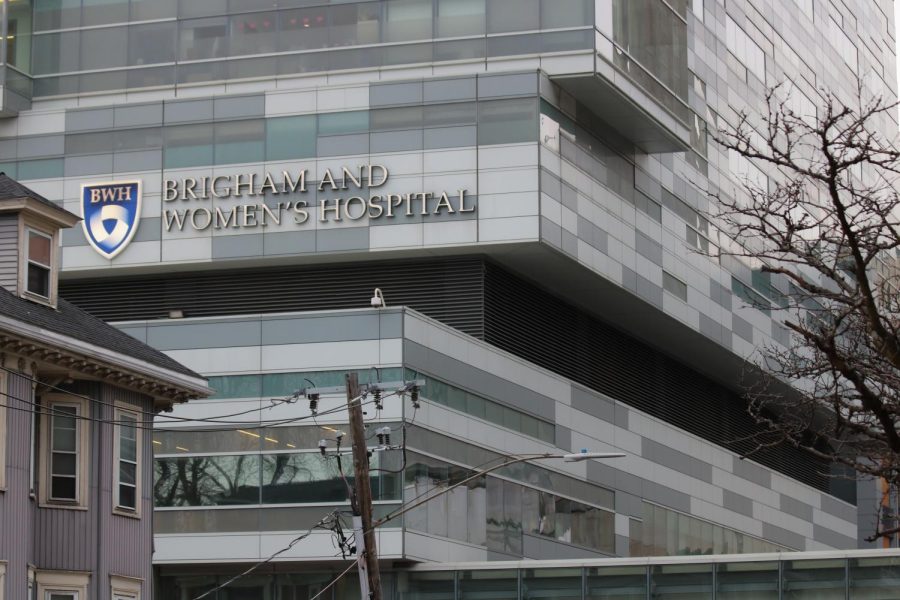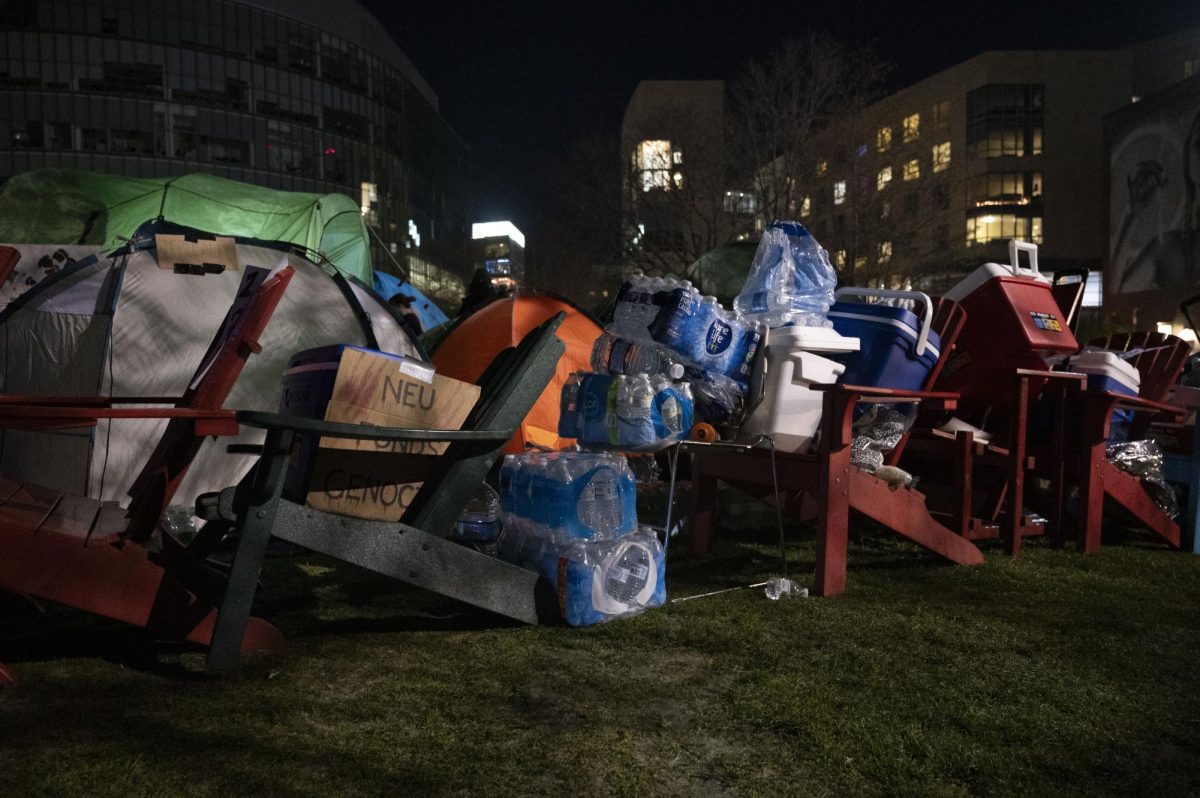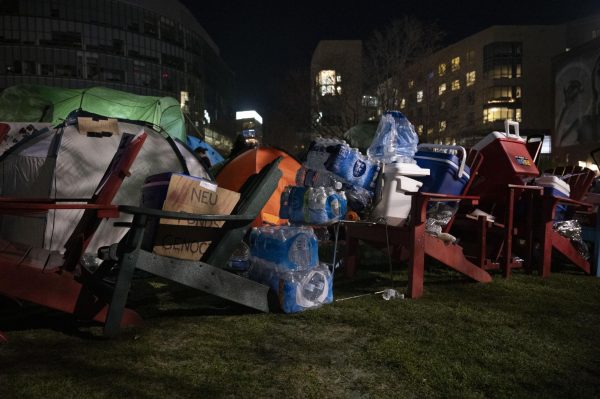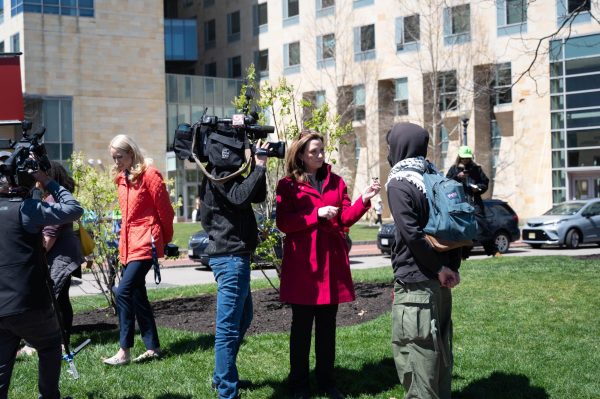Boston hospitals are drowning in the age of Omicron
As Boston hospitals continue to fight through the Omicron surge, the Centers for Disease Control and Prevention urge citizens to get vaccinated and keep up with personal hygiene to combat the spread of the virus. Photo credit to Harrier Rovniak.
February 2, 2022
As Omicron cases surge throughout the city, unvaccinated residents continue to occupy hospitals at the cost of healthcare workers helping non-COVID-19 patients, available emergency room beds and burnout among professionals.
Due to holiday travel in late 2021 and the highly-transmissive Omicron variant, Boston emergency rooms saw 3,306 patients Jan. 12, the highest number since April 2020 despite over 5.7 million Massachusetts residents receiving at least one dose of the Moderna or Pfizer vaccine.
Spikes in the number of emergent patients — those admitted to emergency rooms — urged the Baker-Polito administration to order that Boston hospitals re-prioritize surgeries to help those who are sick with COVID-19. Nonetheless, hospitals are still fighting to keep up with the volume of patients, but at the cost of healthcare professionals.
Shannel Simonin, a registered nurse at Massachusetts General Hospital, said her love for nursing and ability to care for patients has been compromised due to the pandemic.
“I don’t have time to give good quality care,” Simonin said. “I’m just like ‘get the task done, be done with it and don’t show any emotion,’ and that’s not why I’m in nursing. Nursing is supposed to be about nurturing people, giving good quality care and being there for your patients.”
Overwhelmed hospitals have been a central issue since the beginning of the pandemic. At first, the cardinal issue was the lack of ventilators, but since vaccines were widely distributed over the past year, it is now the unvaccinated who pose the biggest threat to those fighting for hospital beds. According to the Massachusetts Department of Public Health as of December 2021, 97% of COVID-19 cases in vaccinated Massachusetts residents did not result in hospitalization.This shows the vaccine’s effectiveness in preventing citizens from becoming deathly ill.
Isabel Jones, a third-year biology major at Northeastern University, said ER workers are frequently putting unvaccinated COVID-19 patients in “red zone” areas designated to the ER’s most critical patients.
“The other day, we had two COVID-19 patients in the red zone who were super sick, oxygen stats in the 70’s, which is super bad,” Jones, an ER technician at Beth Israel Deaconess Medical Center said. “Your oxygen is supposed to be about 94% saturation in your body, so 70 is super low and dangerous.”
Adding to patients’ stress, A podiatrist at a Beth Israel Deaconess Medical Center said that the sudden halt to non-essential surgeries — implemented by Governor Baker at the end of December 2021 — caused logistical inconveniences for his patients.
“If the patient elected to have surgery and they already made plans to take time off work for four to six weeks to recuperate, they may have had to make special arrangements like having somebody staying with them,” he said. “So that was disrupted and now we have to go back and schedule these patients. We have to find a new time for them and they have to go through all that process all over again, so from that standpoint, it was inconvenient.”
In addition to having postponed or canceled procedures, many non-COVID-19 emergent patients have experienced the detriments of over-capacitated hospitals, forcing local emergency rooms to operate under their Code Help plan status. This status is enacted when hospitals are overcrowded and reroute ambulances and walk-in patients to other emergency rooms to help accept and manage more new patients.
Code Help plans have recently been used in Jones’ time working in the ER. She said that the biggest issue is unvaccinated emergent COVID-19 patients occupying the beds of non-COVID-19 patients.
“That’s the most important problem because that’s the biggest argument to convince people to get vaccines,” Jones said. “People are like ‘oh COVID-19 doesn’t affect me, I don’t mind if I have COVID-19,’ but these people who are are widely unvaccinated are coming in with COVID-19 and taking up beds from people who come in with heart attacks, strokes, what have you.”
As Boston hospitals continue to fight through the Omicron surge, the Centers for Disease Control and Prevention urge citizens to get vaccinated and keep up with personal hygiene to combat the spread of the virus. To help aid emergency rooms’ capacity issues, local ER employees also ask non-emergent patients to consider visiting urgent care before the ER.
“It’s always a good idea to go to urgent care before you just default to the emergency room because you could be taking a bed from people who are in really serious condition,” Jones said.
While surges have overwhelmed emergency rooms for the past two years, long-standing burnout among healthcare professionals is also a negative effect of the pandemic. Many hospitals are enforcing vaccination requirements across the nation, causing many healthcare workers who don’t feel supported by their community to quit their jobs, leaving the remaining professionals even more overwhelmed.
Simonin said that because many administrative staff are still working remotely, she had to pick up their responsibilities in addition to hers, causing her to work “over 400 hours of overtime in the past two years.”
“I’m like ‘this isn’t my job,’ my job is to take care of patients, triage their symptoms and adequately communicate back to my patients and back to my team,” Simonin said. “And it’s like, you’re asking me to do more and more and more and pick up overtime. But I’m a human taking care of other humans, I can’t be a robot.”


















